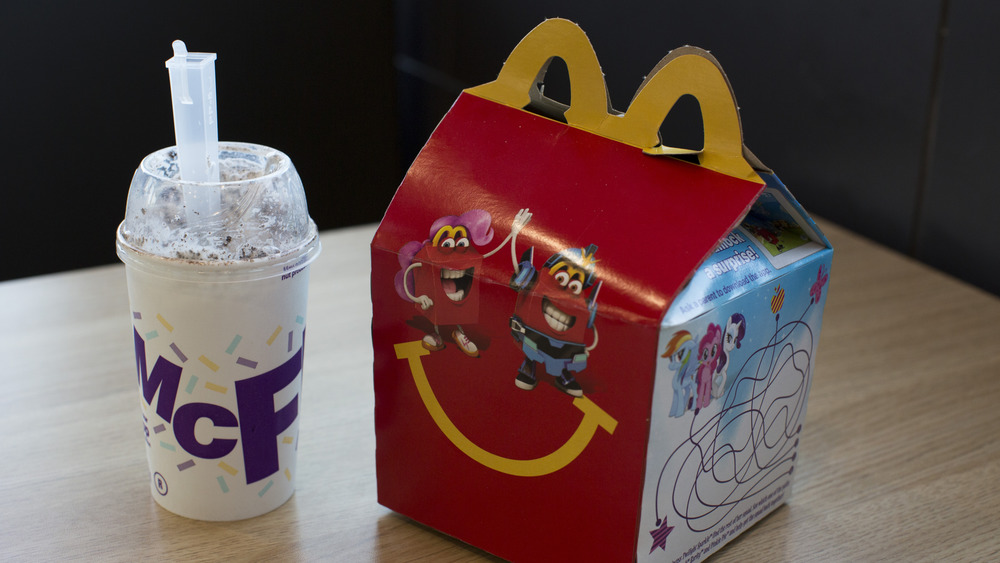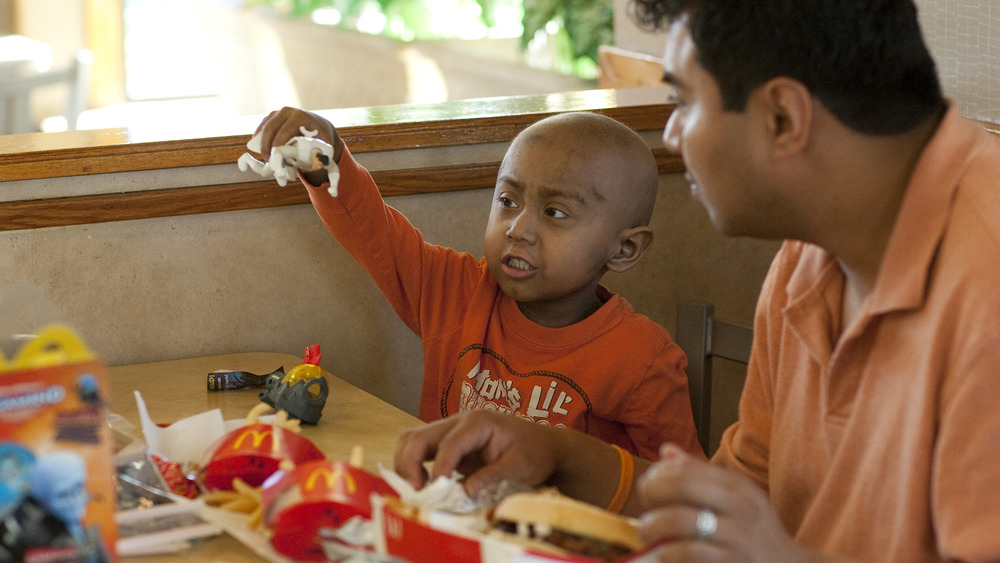The Dangerous Truth Lurking Inside Every McDonald's Happy Meal
For over 40 years, McDonald's has been selling Happy Meals for children. In 2016, Sense360 estimated that 3.2 million Happy Meals were sold every day! Though the offerings have changed over time in the face of numerous controversies, the basic concept still reigns. A Happy Meal includes a full meal and drink, which McDonald's website states it continuously seeks to improve nutritionally in response to criticism. Besides the food-related concerns, the toy gifted in each Happy Meal has also been regularly scrutinized, according to Eater.
Mashed spoke with Dr. Nicole Avena, a research neuroscientist, expert in nutrition, diet, and addiction, and the author of What to Feed Your Baby and Toddler (the answer isn't a Happy Meal). Dr. Avena notes that first and foremost the name given to the popular children's menu option is an issue. "This is a psychological trick to have children and parents associate happiness with highly-processed junk food and soda." She goes on to point out that consuming a Happy Meal results in an effect similar to using drugs. "Your brain releases neurochemicals in reward-related brain regions that increase dopamine, which can make you feel good." She sees the trend in the general menu as well, noting that supersize options were required because consumers "build up tolerance, just like with drugs, and end up overeating and causing damage to [their] health." Something that appears harmless can slowly but steadily become an issue, resulting in an addiction requiring a conscious effort to quit.
How bad is it?
Dr. Avena also notes, "When parents take their kids to McDonald's, it is most often as a 'treat' so they let their kids order what they want." If you are already standing at the counter with your child, it can be hard to convince them to have water and no dessert. Dr. Avena points out, "the 4 piece chicken nugget Happy Meal with fries, apple slices, and chocolate milk, is 20 percent of the daily recommended amount of saturated fat, 23 percent of sodium, and more than 50 percent of sugar." The numbers increase staggeringly if a dessert is added, which can be hard to avoid if you have already agreed to McDonald's.
Also of particular worry, according to Dr. Avena, is the toy. "Kids form an association between the taste of this food and toys." Since toys are fundamentally enjoyable for children, "the taste becomes associated with that love." Dr. Avena explains, "It is classical conditioning in psychology, and it works." Learning is influenced by conditioning and McDonald's has chosen a seemingly innocent toy to create this association. Dr. Avena doesn't think McDonald's will remove the toy any time soon "because it would break the association and this is how they get kids hooked." They are more likely to create lifelong consumers by serving a Happy Meal alongside an identifiable branded toy. If parents choose to bring their children to McDonald's, it is important for them to be informed and know the potential downstream effects of regular visits.

